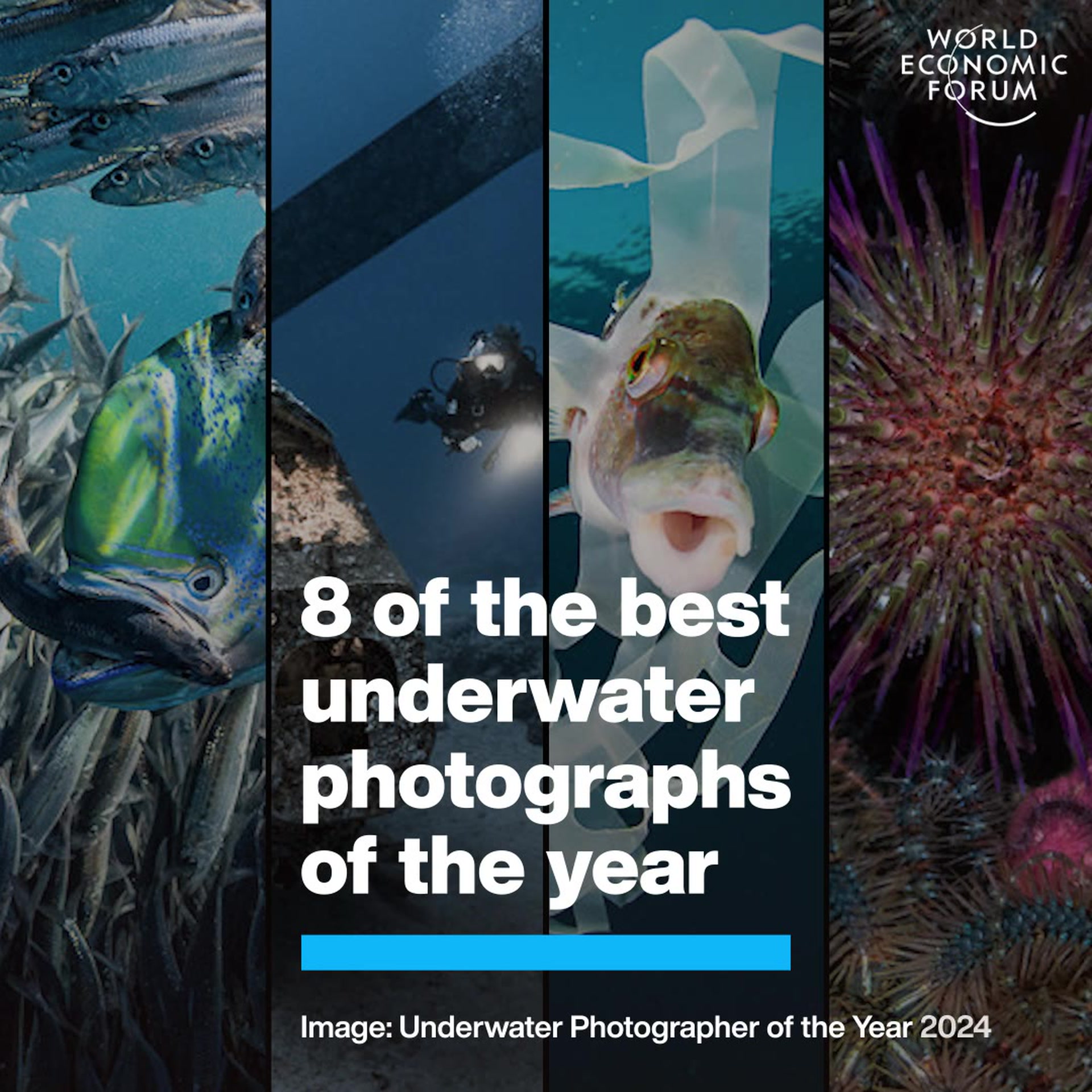What is the Great Blue Wall Initiative?

Africa’s Great Blue Wall initiative aims to establish a network of seascapes that benefit both people and nature more sustainably. Image: Pexels/Kellie Churchman

Get involved with our crowdsourced digital platform to deliver impact at scale
Stay up to date:
Ocean
Listen to the article
- Overfishing, pollution, climate change and extractive industries are taking their toll on ocean ecosystems.
- Every single coral reef in the Western Indian Ocean is at risk of total collapse within the next 50 years, unless something is done to reverse it.
- The Great Blue Wall Challenge aims to support its coral reefs by protecting, restoring, and conserving 2 million hectares of ocean and coastal ecosystems by 2030.
The ocean is a source of trillions of dollars’ worth of free economic activity. It regulates the climate, provides food for humans and a habitat for our food to grow. It also generates recreation and tourism opportunities and even sequesters carbon, all without our input, and all for free.
The economic value of these everyday tasks is staggering. One whale is worth $2 million alone for the role it plays in the carbon cycle, the money it generates through tourism and the nutrients it disperses that make fish more abundant.
But if we take too much, the ocean’s ability to provide us with these services diminishes and our role in keeping our environment stable rises, as do the costs.
The Western Indian Ocean (WIO) is one of the most biologically diverse places on Earth. It is home to 38% of the world’s coral reef species, but only about 7% of the region’s coastal and marine environment enjoys some form of protection.
Unfortunately, overfishing, pollution, climate change and extractive industries are taking their toll on key ecosystems, and every single coral reef in the WIO is at risk of total collapse within the next 50 years unless something is done to reverse it.
What is the Great Blue Wall initiative?
Africa’s Great Blue Wall initiative aims to establish a network of seascapes that benefit both people and nature more sustainably. The initiative sets out to help countries reach the following targets: protect 30% of the ocean by 2030; achieve net gain of critical blue ecosystems – such as mangroves, corals, seagrasses – by 2030; develop a regenerative blue economy and create millions of jobs by supporting local communities through funding, training and technical assistance.
Led by Western Indian Ocean countries, and supported by the International Union for Conservation of Nature and a coalition of partners, the Great Blue Wall initiative has called upon innovators to help enable the regeneration of the WIO while creating economic opportunities for the 70 million people currently dependent on it.
Start-ups and social enterprises are being asked to help the sustainability and resilience of the WIO by submitting solutions that are beyond the ideation or prototype phase, in the following five focus areas: sustainable and equitable use of ocean resources; supporting activities; pollution (excluding plastic); seascape conservation and restoration; and protecting and restoring blue carbon ecosystems.
Submissions for the Great Blue Wall Challenge are already underway, with a deadline of 24 April 2023.
Winners will be announced on World Ocean Day on 8 June 2023.
The 5-10 winners will also feature in the African Climate Action Summit and the 2023 UN Climate Change Conference (COP28), and will also be recognized as “top innovators” and invited to join the World Economic Forum's Uplink Innovation Network Programme to help scale and advance the initiative.
What are we doing to protect our oceans?
More than half of the world's oxygen is generated by our oceans, and they absorb 50 times more CO2 than our atmosphere. So it is important to protect them against overfishing, plastic and noise pollution, coastal development, poaching and unsustainable tourism.
Protecting our oceans is a key goal in the UN’s sustainable development goals.
What's the World Economic Forum doing about the ocean?
And the World Economic Forum’s Ocean Action Agenda and Friends of Ocean Action recently launched an appeal – known as Ocean Action in 2023 – for continued ambitious progress to achieve ocean health through the suite of opportunities ahead.
A healthier, more sustainable and profitable ocean may still be within reach with initiatives like the Great Blue Wall and many other efforts that aim to protect our oceans and ensure they are utilized sustainably for generations to come.
Don't miss any update on this topic
Create a free account and access your personalized content collection with our latest publications and analyses.
License and Republishing
World Economic Forum articles may be republished in accordance with the Creative Commons Attribution-NonCommercial-NoDerivatives 4.0 International Public License, and in accordance with our Terms of Use.
The views expressed in this article are those of the author alone and not the World Economic Forum.
Related topics:
The Agenda Weekly
A weekly update of the most important issues driving the global agenda
You can unsubscribe at any time using the link in our emails. For more details, review our privacy policy.
More on OceanSee all
William Austin
April 17, 2024
Mark John Costello
April 8, 2024
Robin Pomeroy and Linda Lacina
March 28, 2024
Meg Jones
March 14, 2024







